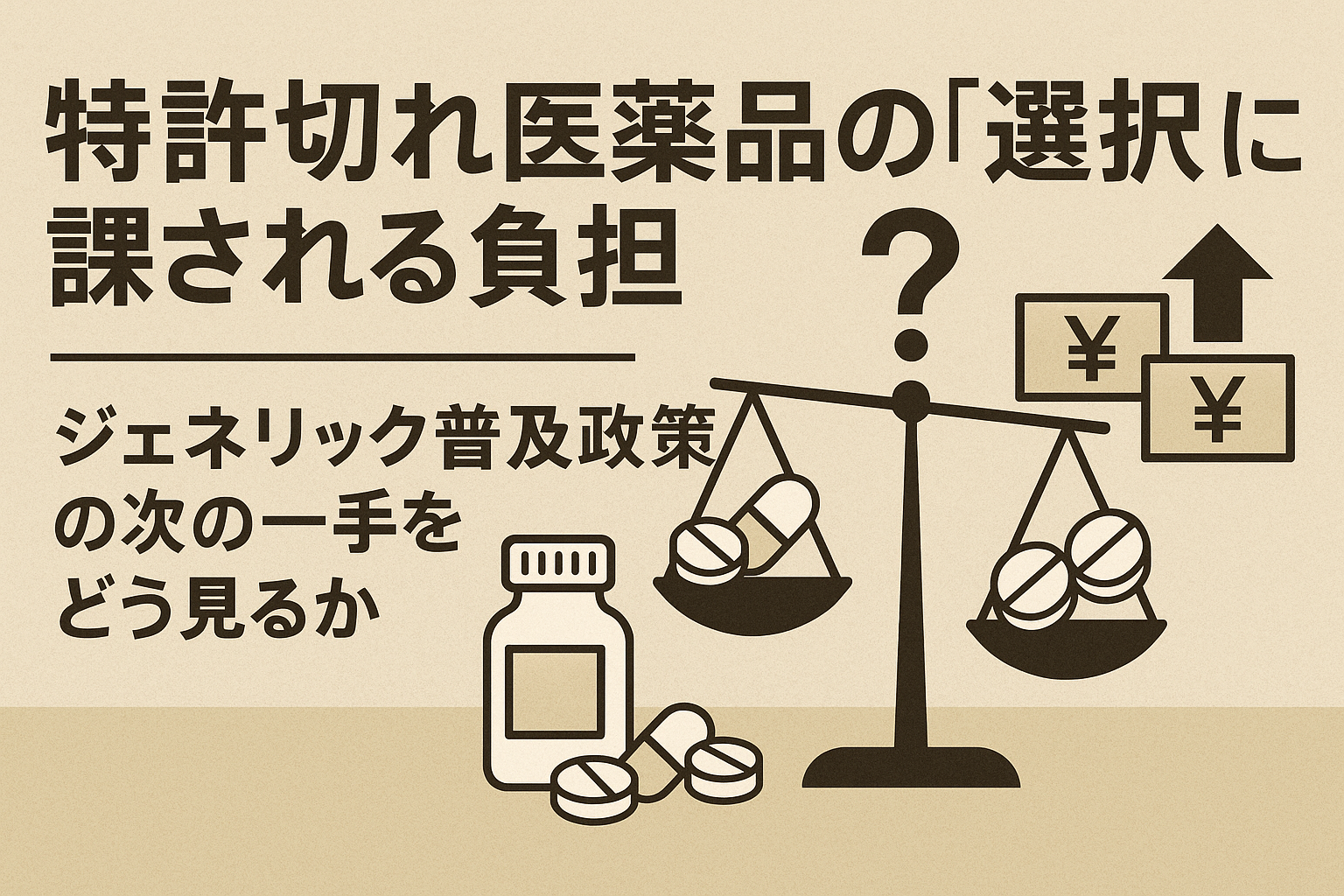Japan’s Ministry of Health, Labour and Welfare has begun considering an increase in the out-of-pocket burden for patients who continue to choose brand-name drugs after their patents expire. The current system—where patients pay an additional 25% of the price difference between the original and generic versions—may be raised to 50%, 75%, or even 100%.
Between “Freedom of Choice” and Policy Guidance
The purpose of the system is clear: to encourage the switch to generics and curb medical costs.
At the same time, patients still retain “the freedom to choose brand-name drugs in consultation with their doctors,” and the added charge is positioned as the price of that freedom.
However, many see this not as a “respect for freedom” but a “restriction of freedom.”
Especially given ongoing concerns about the stable supply of generics, critics warn that the move could effectively strip patients of their right to choose.
Pushing Forward Without Restoring Trust in Generics Could Backfire
As discussed in the ministry’s deliberations, supply stability remains a serious challenge.
Since 2020, a series of scandals and production halts at pharmaceutical companies have shaken public confidence in generics.
If the government strengthens the additional burden on brand-name drugs before that trust is fully restored, patients may feel they are being forced toward uncertain medicines, potentially undermining the legitimacy of the policy as a whole.
Who Should Bear the “Cost” of Containing Healthcare Spending?
From a fiscal standpoint, reducing drug expenditures is an urgent issue.
Yet we must be cautious about a simplistic equation where “cutting public medical costs = increasing patient burdens.”
If the government wishes to emphasize the social benefits of generic promotion, then financial resources should be directed toward bolstering supply stability and quality control systems.
“The Order of Trust” Needed in Policy Design
The idea of making patients fully responsible for the cost of brand-name drugs after patent expiration may sound logical at first glance.
But unless the reliability, supply systems, and transparency of pharmaceuticals catch up, the policy risks appearing more coercive than rational.
Trust must come first—then choice, then policy guidance.
That, perhaps, is the only way to achieve both cost containment and patient confidence.

